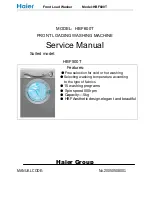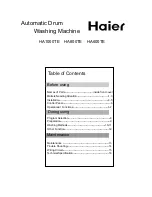
Warning and safety instructions
13
Correct use
Do not use solvents in the dishwasher. Risk of explosion.
Dishwasher detergents can cause burning on the skin and in the
eyes, nose, mouth and throat. Avoid contact with detergents. Do not
inhale powder detergents. Do not swallow dishwasher detergents.
Seek medical attention immediately if detergent has been swallowed
or inhaled.
Avoid leaving the dishwasher door open unnecessarily. You could
injure yourself on the open door or trip over it.
Do not sit or lean on the open door. The dishwasher could tip
over. This could injure you or damage the dishwasher.
Crockery may be very hot at the end of the programme. Allow the
dishes to cool until they are comfortable enough to handle before
unloading them.
Only use detergent and rinse aid formulated for domestic dish-
washers. Do not use washing-up liquid.
Do not use any commercial or industrial detergents. These may
cause material damage, and there is a risk of a severe explosive
chemical reaction (such as an explosive oxyhydrogen gas reaction).
Do not fill the rinse aid reservoir with powder or liquid detergent.
This will cause damage to the reservoir.
Do not fill the AutoDos (depending on model) with powder or li-
quid detergent. Loose detergent will damage the AutoDos.
Do not fill the salt reservoir with powder or liquid detergent. Deter-
gent will damage the water softener.
Only use special coarse-grained dishwasher salt or other pure kit-
chen salt for reactivation. Other salts may contain insoluble additives
that can impair the functioning of the water softener.
Summary of Contents for 11 522 040
Page 2: ......
Page 45: ...Loading the dishwasher 45 Cutlery tray Heavily soiled crockery ...
Page 93: ......
Page 94: ......














































